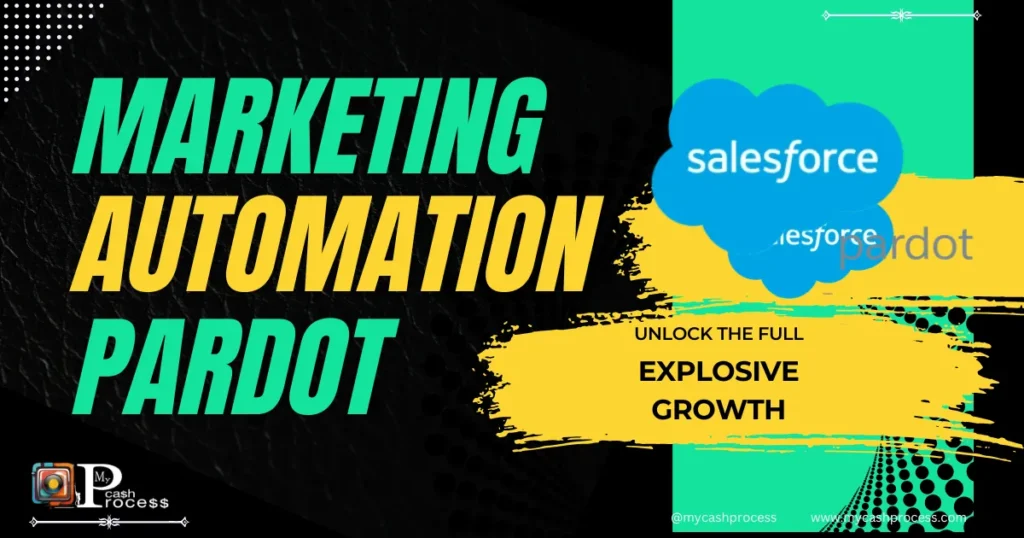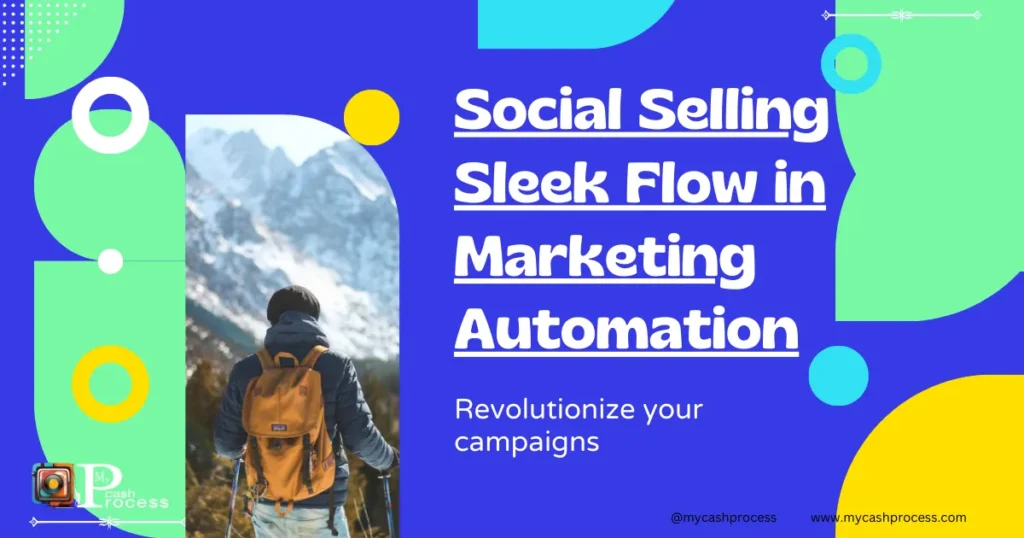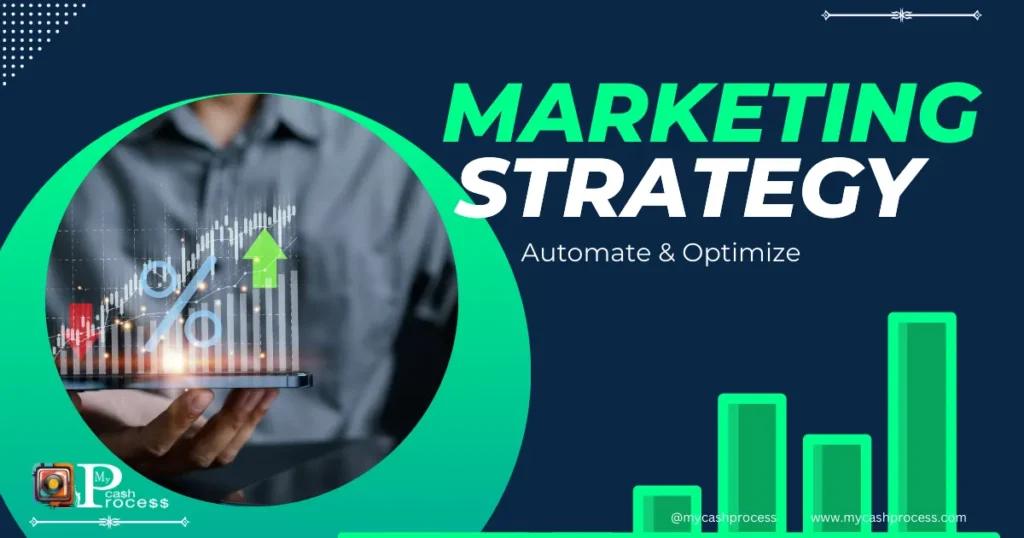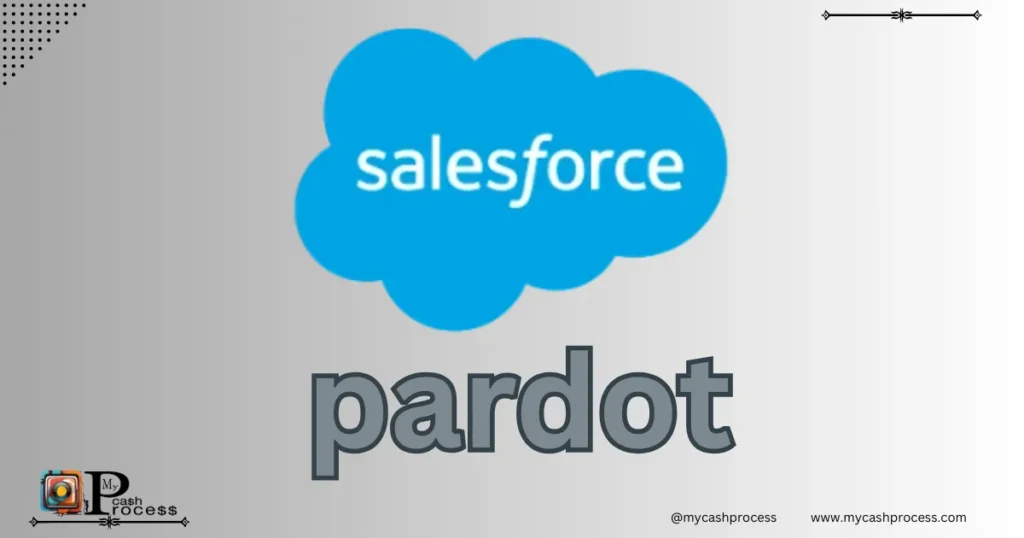Introduction
In today’s fast-paced digital landscape, businesses must employ efficient and scalable solutions to stay ahead of the competition. One of the most powerful tools to achieve this is Pardot marketing automation. This comprehensive system provides a way to streamline marketing efforts, ensuring that businesses can engage with their audiences in a more personalized and effective way. As companies strive to increase efficiency, drive conversions, and reduce manual tasks, Pardot marketing automation has emerged as a pivotal solution. This article will explore the many ways in which Pardot-marketing automation can unlock explosive growth for businesses, guiding you through its key features, benefits, and the strategic role of a marketing automation specialist in implementing these tools.
Quick Access Guide
What is Pardot Marketing Automation?
Pardot marketing automation refers to the use of a software solution designed to automate marketing tasks, such as email campaigns, lead management, and data tracking, ultimately helping businesses achieve better engagement, improve customer retention, and increase revenue. Pardot, developed by Salesforce, is known for its easy-to-use interface and powerful features that streamline marketing efforts and bring the automation of marketing campaigns to the next level.
Key Features of Pardot Marketing Automation
Pardot offers an array of features that can significantly improve marketing efforts. These features are designed to handle the complexities of modern marketing, allowing businesses to implement effective strategies without manual intervention.
Lead Scoring and Nurturing
Lead scoring is an integral part of Pardot marketing automation. It allows businesses to assess and rank their leads based on their interaction with the brand, such as email opens, clicks, website visits, and other engagement activities. This enables companies to prioritize high-potential leads, ensuring that sales teams focus their efforts where it matters most.
Lead nurturing is another critical feature. With Pardot marketing-automation, businesses can create automated email campaigns that deliver relevant content at every stage of the customer journey. This helps maintain engagement and ensures that leads are properly nurtured until they are ready to convert.
Email Marketing and Automation
Email marketing is one of the most common uses of Pardot marketing automation. The platform allows businesses to create personalized email campaigns that are tailored to each segment of their audience. By automating email marketing, companies can send timely and relevant messages to their customers, keeping them engaged without the need for constant manual intervention.
Pardot’s email automation also includes tools for A/B testing, allowing businesses to optimize their email campaigns by experimenting with different subject lines, messaging, and design layouts.
Integration with CRM Platforms like Salesforce
One of the standout features of Pardot marketing automation is its seamless integration with Salesforce, one of the leading customer relationship management (CRM) platforms. This integration allows for a unified system where marketing and sales teams can collaborate more effectively. Sales teams can access marketing data, track leads, and monitor their progress in real-time, ensuring that marketing campaigns align with sales strategies and goals.
Why Pardot Marketing Automation is Essential for Explosive Growth
The power of Pardot marketing automation lies in its ability to drive growth by streamlining repetitive tasks, enabling businesses to focus on higher-level strategy. Here’s howPardot marketing automation can unlock explosive growth:
Accelerating Business Growth
One of the main reasons businesses choose Pardot marketing automation is its ability to scale marketing efforts. By automating routine tasks such as lead generation, data entry, and follow-up emails, businesses can save time and resources. This increased efficiency allows marketing teams to focus on more strategic activities, driving long-term growth.
A significant advantage of Pardot marketing automation is the ability to deliver highly targeted campaigns. By segmenting audiences based on their behaviors, preferences, and demographics, businesses can craft messages that are relevant to each customer, increasing the likelihood of conversion.
Key Reasons to Choose Pardot
Businesses choose Pardot marketing automation for several reasons, including:
- Ease of Use: Pardot offers an intuitive interface, making it accessible for teams without deep technical expertise.
- Scalability: As businesses grow, Pardot marketing automation grows with them, offering tools and features that cater to companies of all sizes.
- Robust Analytics: Pardot provides in-depth reporting and analytics tools, allowing businesses to track their performance and optimize their campaigns.
- Seamless Integration: Pardot’s integration with Salesforce ensures that both marketing and sales teams can work from a single platform, improving collaboration and increasing efficiency.
Example of Explosive Growth with Pardot
A prime example of explosive growth using Pardot marketing automation is how a company in the technology sector used Pardot to automate its lead generation and nurturing process. Before using Pardot, the company had a manual process for reaching out to potential clients, which was time-consuming and inefficient. By implementing Pardot marketing automation, the company was able to streamline its processes, prioritize leads, and engage them with personalized content. As a result, the company saw a 40% increase in qualified leads and a 25% increase in overall revenue in just six months.
Pardot Marketing Automation vs Marketing Cloud: Which One is Right for You?
When choosing a marketing automation platform, businesses often compare Pardot marketing automation with other solutions, such as Salesforce’s Marketing Cloud. While both platforms are powerful, they offer different features and cater to different needs.
Comparison of Pardot and Marketing Cloud
Pardot marketing automation is typically best suited for B2B businesses, especially those that need to align marketing with sales teams. It is a more straightforward tool designed to automate marketing processes like lead nurturing, email campaigns, and reporting. On the other hand, Marketing Cloud is better suited for larger enterprises or those focused on B2C (business-to-consumer) marketing. Marketing Cloud offers more complex features like social media marketing, data management, and customer journey mapping, which are ideal for businesses looking to create sophisticated, multi-channel marketing strategies.
Strengths and Limitations of Each Platform
| Feature | Pardot Marketing Automation | Marketing Cloud |
|---|---|---|
| Target Audience | B2B businesses and small to medium-sized companies | B2C businesses and large enterprises |
| Ease of Use | User-friendly, easy to navigate | More complex, requires advanced expertise |
| Lead Management | Excellent for lead scoring and nurturing | More suited for advanced segmentation |
| Email Automation | Robust email automation capabilities | More advanced email features |
| CRM Integration | Seamless integration with Salesforce | Deeper integration with various CRMs |
| Multi-Channel Marketing | Primarily focused on email and lead nurturing | Strong multi-channel capabilities (social, SMS, etc.) |
Why Pardot Might Be the Best Fit for Your Business
If your business focuses on B2B sales and requires a tool that integrates seamlessly with Salesforce, Pardot marketing automation is likely the best fit. It offers a streamlined, easy-to-use platform that helps nurture leads and increase conversions. While Marketing Cloud offers more complex features, Pardot marketing automation is ideal for businesses seeking a simpler solution that aligns well with sales teams and focuses on lead management.
How Marketing Automation Specialists Use Pardot for Success
Marketing automation specialists play a crucial role in implementing Pardot marketing automation and ensuring its effectiveness in driving business growth. These specialists possess the technical knowledge and expertise required to configure, manage, and optimize the Pardot platform.
The Role of a Marketing Automation Specialist in Implementing Pardot
A marketing automation specialist is responsible for integrating Pardot marketing automation with a company’s existing systems, particularly the CRM. They help design automated workflows, set up lead scoring models, and implement email marketing campaigns. Additionally, specialists work closely with both the marketing and sales teams to ensure seamless collaboration and data flow.
Key responsibilities of a marketing automation specialist include:
- Campaign Strategy: Crafting strategies for nurturing leads and converting them into customers.
- Automation Workflows: Creating custom workflows to automate repetitive marketing tasks, saving time and resources.
- Data Analytics: Monitoring the performance of campaigns and using the insights to refine strategies and improve ROI.
- Lead Management: Setting up lead scoring and nurturing processes to ensure that leads are engaged at the right time with relevant content.
Best Practices for Specialists to Maximize the Potential of Pardot
To leverage Pardot marketing automation effectively, a marketing automation specialist should follow best practices that ensure optimal results. These include:
- Segmentation: Dividing leads into specific segments based on demographics, behavior, or interests allows for more personalized and targeted marketing.
- Lead Nurturing: Creating email sequences that guide leads through their journey from awareness to decision-making. Automation ensures timely and consistent follow-up without manual effort.
- Data-Driven Decisions: Constantly analyzing data from campaigns to identify opportunities for optimization. A/B testing, for example, helps refine email subject lines, calls to action, and content.
- CRM Integration: Ensuring that Pardot is integrated with the CRM (like Salesforce) to align marketing and sales efforts. This guarantees smooth handoff of leads from marketing to sales teams, improving conversion rates.
Case Studies of Successful Pardot Implementations by Specialists
Several companies have successfully implemented Pardot marketing automation, seeing substantial improvements in lead generation and conversion rates.
- Tech Company Case Study: A B2B tech company implemented Pardot marketing automation to manage leads from multiple sources. By segmenting their audience and automating lead nurturing campaigns, the company increased its qualified leads by 50% and saw a 30% growth in sales in under a year.
- E-Commerce Business Case Study: A large e-commerce business used Pardot to streamline its customer journey. The business implemented automated email campaigns based on customer behavior, resulting in a 20% increase in sales conversions and a 15% boost in customer retention.
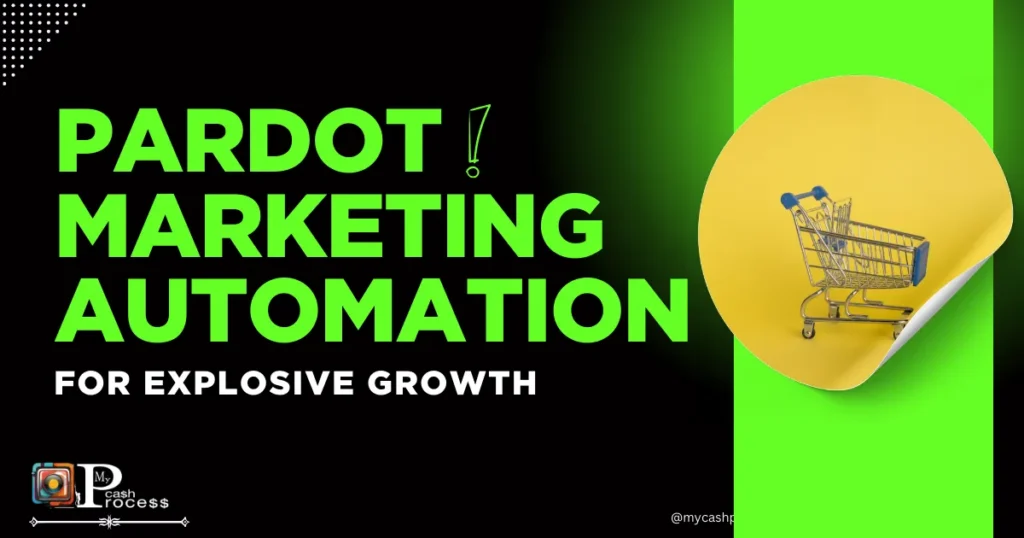
Setting Up Pardot Marketing Automation for Your Business
Implementing Pardot marketing automation can seem overwhelming, but with the right approach, it can be done seamlessly. Here’s a step-by-step guide to get started with Pardot.
Step-by-Step Guide to Getting Started with Pardot
- Define Your Marketing Goals: Before setting up Pardot, it’s crucial to understand your marketing objectives. Are you aiming to increase lead generation, improve conversion rates, or enhance customer engagement? Defining clear goals will help tailor your Pardot setup to meet your specific needs.
- Integrate with CRM: Pardot works best when integrated with a CRM like Salesforce. Ensure that all your lead and customer data is synced between Pardot and your CRM for a smooth workflow and accurate reporting.
- Set Up Your Campaigns: Once your CRM integration is complete, it’s time to set up your automated campaigns. Begin by creating email templates, defining lead scoring rules, and building nurturing workflows.
- Test Your Setup: Before launching any campaigns, test the entire process to ensure everything is working as expected. This includes checking emails, workflows, and data syncing between Pardot and your CRM.
- Launch and Monitor: After testing, launch your campaigns. Monitor their performance closely using Pardot’s analytics tools, and make adjustments as needed to optimize results.
Integration Tips with Other Tools and Platforms
While Pardot marketing automation integrates seamlessly with Salesforce, it can also connect with various third-party platforms. For example, integrating with Google Analytics allows for deeper insights into how your audience is interacting with your content. Similarly, integration with social media platforms can automate social campaigns and track engagement.
Checklist for Successful Setup
- Ensure CRM integration (e.g., Salesforce).
- Create and test lead scoring models.
- Define segmentation strategies for personalized marketing.
- Set up email automation workflows for lead nurturing.
- Utilize A/B testing to optimize campaigns.
- Track performance using Pardot’s reporting tools.
Advanced Features of Pardot to Boost Your Marketing Strategy
Pardot marketing automation offers advanced features that can take your marketing strategy to the next level. Let’s explore some of these powerful tools and how they can help improve your campaigns.
Dynamic Content, Segmentation, and A/B Testing
- Dynamic Content: Pardot allows you to create dynamic content that changes based on a lead’s behavior or profile. For example, you can display different offers to a user who has already shown interest in a product versus a new visitor. This personalization enhances engagement and increases the chances of conversion.
- Segmentation: As mentioned earlier, segmentation is a crucial feature of Pardot marketing automation. By creating distinct segments, businesses can tailor content and messaging to different audience groups. This ensures that each lead receives the most relevant information at the right time.
- A/B Testing: Pardot enables users to perform A/B testing on emails, landing pages, and forms. This allows businesses to experiment with different subject lines, CTAs, and designs to identify the most effective combinations.
Real-World Examples of Companies Using These Features
- Tech Startup: A tech startup used dynamic content to personalize their email campaigns based on customer interaction. By offering different content to users at various stages of the customer journey, they saw a 35% increase in engagement rates.
- Retailer: A retail business used A/B testing to optimize their product promotion emails. Testing different subject lines and CTAs helped them achieve a 25% increase in open rates and a 20% increase in sales.
Common Challenges with Pardot Marketing Automation
While Pardot marketing automation is a powerful tool, it’s not without its challenges. Here are some of the most common obstacles users face when implementing Pardot and how to overcome them.
Identifying Common Obstacles Users Face with Pardot
- Integration Issues: Integration with other platforms, particularly CRMs, can sometimes be difficult to set up. Ensuring that your data flows seamlessly between Pardot and your CRM is crucial to avoid discrepancies.
- Learning Curve: While Pardot is user-friendly, there is a learning curve for beginners. New users may find it difficult to navigate the platform and utilize its full potential.
- Data Management: Managing and maintaining data in Pardot can be a challenge, especially as your database grows. Regularly cleaning and updating data is necessary to ensure that campaigns are sent to the right audience.
Solutions to Overcome These Challenges
- Training: Ensure your team receives proper training to maximize the capabilities of Pardot marketing automation. This will help mitigate the learning curve.
- Regular Data Clean-Up: Implement regular data management practices to keep your leads and contacts up to date.
- Technical Support: Utilize Salesforce’s technical support for assistance with integration issues.
Importance of a Marketing Automation Specialist in Troubleshooting
A marketing automation specialist is invaluable when it comes to troubleshooting issues with Pardot marketing automation. Their expertise ensures that integrations are smooth, campaigns are set up correctly, and performance is optimized. With a specialist’s help, businesses can avoid common pitfalls and ensure that their Pardot setup runs efficiently.
Conclusion
Pardot marketing automation has proven to be an essential tool for businesses seeking to streamline their marketing efforts and achieve explosive growth. Its powerful features, including lead scoring, email automation, and CRM integration, enable businesses to engage customers at every stage of the marketing funnel, ultimately driving conversions and revenue.
Warning
- Learning Curve: Transitioning to Pardot marketing automation can be challenging for teams unfamiliar with the platform. Invest time in training to ensure a smooth transition.
- CRM Integration: Ensure proper integration with your CRM to avoid data synchronization issues and to maintain consistent communication with your leads.
Follow us on Pinterest, Twitter X, Facebook, Instagram, Quora, TikTok, Discord, YouTube, and WhatsApp Channel.
Advice
- Regularly optimize your Pardot marketing automation setup to adapt to new trends and technology updates.
- Invest in training for your marketing automation specialist to ensure your team can fully leverage the capabilities of Pardot.
FAQs
-
What is Pardot Marketing Automation?
Pardot marketing automation is a software solution that automates marketing tasks such as email campaigns, lead nurturing, and data tracking, helping businesses improve their marketing efforts.
-
How can I compare Pardot with other marketing platforms like Marketing Cloud?
-
What skills does a Marketing Automation Specialist need to effectively use Pardot?
A marketing automation specialist needs to possess skills in CRM integration, campaign strategy development, data analysis, and email marketing automation to effectively use Pardot marketing automation.

